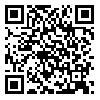Volume 7, Issue 3 (fall 2003)
2003, 7(3): 211-223 |
Back to browse issues page
Download citation:
BibTeX | RIS | EndNote | Medlars | ProCite | Reference Manager | RefWorks
Send citation to:



BibTeX | RIS | EndNote | Medlars | ProCite | Reference Manager | RefWorks
Send citation to:
P. Norouzi, D. Cai, M. A. Malboobi, B. Yazdi Samadi. Transferring OF2 and VAP Genes into Sugarbeet by Agrobacterium rhizogenes to Study Nematode Resistance. Journal of Crop Production and Processing 2003; 7 (3) :211-223
URL: http://jcpp.iut.ac.ir/article-1-456-en.html
URL: http://jcpp.iut.ac.ir/article-1-456-en.html
Abstract: (30014 Views)
OF2 and VAP genes, probably involved in signal transduction of sugarbeet nematode resistance, have already been cloned in bacterial vector by AFLP molecular marker and a two-hybrid system, respectively. To examine their capability to introduce resistance in sugarbeet, the genes were transferred to plant expression vectors. For this reason, OF2 gene after isolation was inserted within T-DNA of pAM194 binary vector, downstream of CaMV35S constitutive promoter and also inserted within T-DNA of modified pBin121 binary vector, downstream of HS1pro-1 gene inducing promoter (responsible for nematode resistance). VAP gene after isolation was inserted within T-DNA of pAM194 plasmid, downstream of CaMV35S constitutive promoter. Thus, three new constructs were made in which genes of signal transduction pathway were expressed to give beet cyst nematode resistance. These plasmids were separately transferred to Agrobacterium rhizogenes, strain AR15834. In the next step, petiole explants of sugarbeet were inoculated with the bacterial cells. Transformation-derived hairy roots were analyzed by GUS staining and/or PCR and were then inoculated with nematode larvae. Primary results showed partial resistance against nematode larvae in some hairy roots. As a result, this resistance can be related to OF2 and VAP genes effect.
| Rights and permissions | |
 | This work is licensed under a Creative Commons Attribution-NonCommercial 4.0 International License. |






